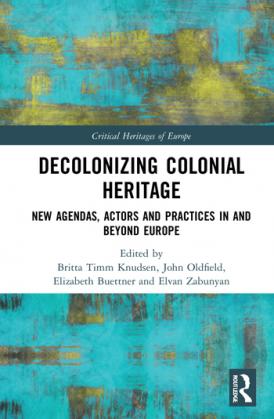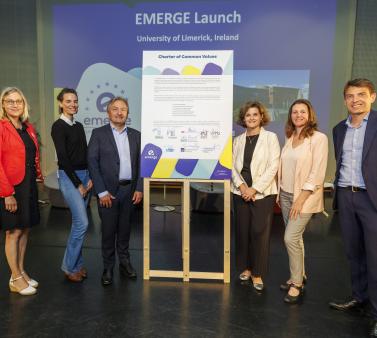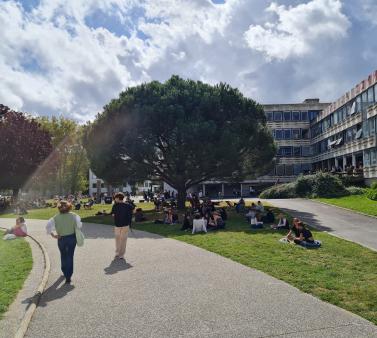
Funded by the European Commission’s Horizon 2020 program, the project ECHOES addresses a pressing dilemma at the heart of contemporary Europe: the fact that while the history of empires and colonialism undoubtedly constitutes a shared European past, this past remains strangely silent in official narratives about Europe’s ‘heritage’. ECHOES proposes that the memory of colonialism finds its place in contemporary European heritage debates, and that Europe not only acknowledges this dilemma but might reflexively and progressively include it at the heart of its identity.
Decolonizing Colonial Heritage. New Agendas, Actors and Practices in and beyond Europe, is co-edited by Rennes 2 Professor of Art History Dr. Elvan Zabunyan, along with Britta Timm Knudsen, John Oldfield and Elizabeth Buettner. The e-book version is available to all in Open Edition.
Book Description
Decolonizing Colonial Heritage explores how different agents practice the decolonization of European colonial heritage at European and extra-European locations. Assessing the impact of these practices, the book also explores what a new vision of Europe in the postcolonial present could look like.
Including contributions from academics, artists and heritage practitioners, the volume explores decolonial heritage practices in politics, contemporary history, diplomacy, museum practice, the visual arts and self-generated memorial expressions in public spaces. The comparative focus of the chapters includes examples of internal colonization in Europe and extends to former European colonies, among them Shanghai, Cape Town and Rio de Janeiro. Examining practices in a range of different contexts, the book pays particular attention to sub-national actors whose work is opening up new futures through their engagement with decolonial heritage practices in the present. The volume also considers the challenges posed by applying decolonial thinking to existing understandings of colonial heritage.
Decolonizing Colonial Heritage examines the role of colonial heritage in European memory politics and heritage diplomacy. It will be of interest to academics and students working in the fields of heritage and memory studies, colonial and imperial history, European studies, sociology, cultural studies, development studies, museum studies, and contemporary art.
The Open Access version of this book, available at www.taylor francis.com, has been made available under a Creative Commons Attribution-Non Commercial-No Derivatives 4.0 license.




